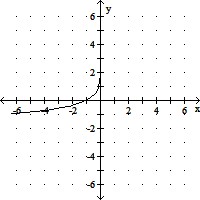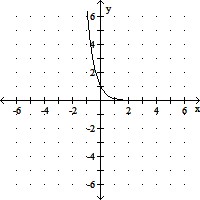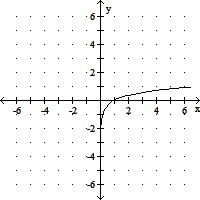Solve the equation in the complex number system.x5 - 1 = 0
A. -1, cos(72°)+ i sin(72°), cos(144°) + i sin(144°), cos(216°) + i sin(216°), cos(288°) + i sin(288°)
B. 1, cos(36°) + i sin(36°), cos(108°) + i sin(108°), cos(180°)+ i sin(180°), cos(252°) + i sin(252°)
C. 1, cos(72°)+ i sin(72°), cos(144°) + i sin(144°), cos(216°) + i sin(216°), cos(288°) + i sin(288°)
D. 1, cos(72°) + i sin(72°), cos(144°) + i sin(144°), cos(216°) + i sin(216°),-1
Answer: C
You might also like to view...
Use l'Hopital's Rule to evaluate the limit.

A. ? B. 0 C. 1 D. -1
Express the integrand as a sum of partial fractions and evaluate the integral. dx
dx
A. 2 ln  -
-  -
-  + C
+ C
B.  -
-  -
-  + C
+ C
C.  -
-  + C
+ C
D. -  -
-  + C
+ C
First, rewrite each equation in exponential form. Then, use a table of coordinates and the exponential form to graph the logarithmic function. Begin by selecting -2, -1, 0, 1 and 2 for y. Finally, based on your graph, describe the shape of a scatter plot that can be modeled by f(x) = log b x, 0 < b < 1.y = log1/7 x
A. 
increasing
B. 
decreasing,
although rate of decrease is slowing down
C. 
increasing,
although rate of increase is slowing down
D. 
decreasing,
although rate of decrease is slowing down
Solve the given equation by finding the unknown value.87 ? ? = 0
A. 87 B. 0 C. not possible D. 1